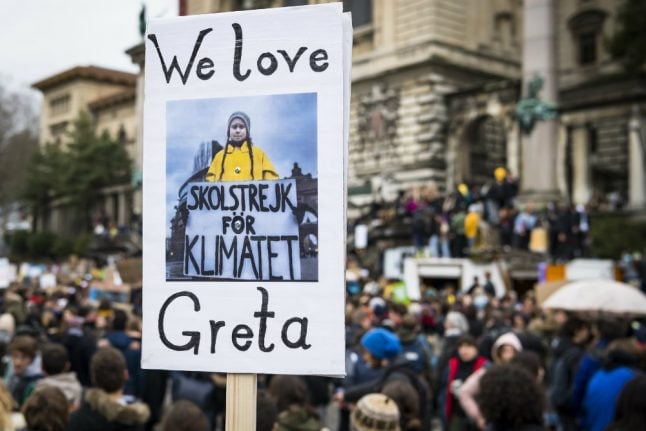The Swedish teenager, whose school strike for climate inspired demonstrations in 120 countries, is one of three finalists for the newly-founded Prix Liberté.
Thunberg was nominated along with Saudi blogger and dissident Raif Badawi, who has been in prison in Saudi Arabia since 2012; and photojournalist Lu Guang, who was detained by Chinese authorities in 2018.
The activist, who spoke to The Local last year when her school strike was in its infancy, has already been nominated for Norway’s Nobel Peace Prize.
Six months ago, then a 15-year-old, she camped outside Sweden's parliament next to a hand-written sign pronouncing “SCHOOL STRIKE FOR CLIMATE”: a statement that moved peers across the world to engage in the climate movement.
In a tweet, Thunberg wrote that she was ‘honoured” to be nominated for the Normandy prize.
I’m honoured to be nominated for Prix Liberté. https://t.co/t53xXL2KlK pic.twitter.com/QgeGtTAIv5
— Greta Thunberg (@GretaThunberg) March 24, 2019
The Freedom Prize “gives young people all over the world the opportunity to choose an exemplary public figure or organisation, committed to the fight for freedom,” the Normandy region wrote on its website, citing those who risked their lives for freedom “when they landed on the Normandy beaches” on June 6th, 1944 as inspiration for the new award.
Once the winner has been chosen, the Prix Liberté award ceremony will be held in Normandy in June.
READ ALSO: How Greta Thunberg's school strike became a global climate movement



 Please whitelist us to continue reading.
Please whitelist us to continue reading.
Member comments